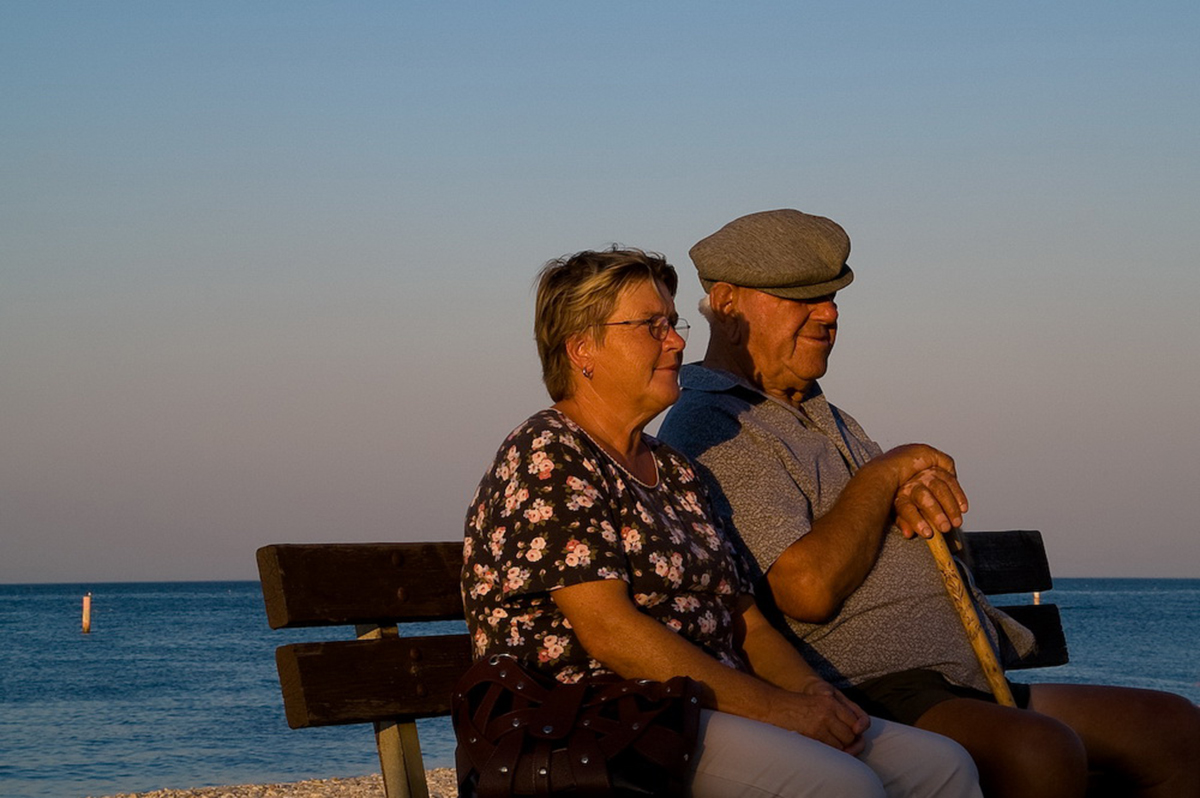The difference in longevity between sexes was noticed long ago. Women live longer than men in most countries around the world, with a mean difference of 4.2 years in lifespan. This difference is projected to increase to 4.8 years by the year 2050.

And the longest lived person officially recorded (122 years old) was woman as well. Nowadays, the only country in the globe where men live longer than women is Bangladesh! Likewise, the mortality rate is lower in young women compared with young men. In women, the mortality rate is lower at every age, even in childhood.
Mortality from all causes is higher among males
The reasons for the difference between male and female life expectancies are not fully understood. Certainly, hormonal and genetic factors have a prominent and complex role. Environmental and socioeconomic influences also weigh in. It is quite curious to note that female longevity superiority is quite widespread in the animal kingdom as well, meaning it is not just a human idiosyncrasy.
It is well documented that the excess mortality among men is mainly due to cardiovascular disease. Could this be it? As one researcher showed in 2006, for virtually all the most frequent causes of death, including accidents, cancer, heart disease, pneumonia, stroke and chronic obstructive pulmonary disease, and at virtually every age, males die at a higher rate. There is no single cause of death among the most common ones that afflicts the male gender more particularly than the other causes.
See Also: Surprising Longevity: The Tiny Country with the World's Longest Living People
For instances, arthritis, one of the most widespread, debilitating diseases, is significantly more common in the female population. The reasons why these sex differences exist are simply not known at the moment.
One other hypothesis addresses the possibility that men’s physiological mechanisms for aging just act quicker than women’s, i.e., men simply deteriorate at a higher rate than women. While there is a general consensus among the scientific community that this is not true, there is some indication that men tend to be less “robust” than women. In other words, "women do not live longer than men because they age slowly, but because they are more robust at every age”.
Thrill-seekers vs. cautious souls: a gendered perspective
Men and women often exhibit divergent patterns of risk-taking behavior. Men tend to engage in riskier behaviors such as smoking, heavy drinking, reckless driving, and participating in dangerous sports. This disparity in risk tolerance is influenced by a combination of biological, psychological, and societal factors.
Biologically, differences in brain chemistry, particularly the effects of hormones like testosterone, can lead to greater impulsivity and sensation-seeking in men. Psychologically, socialization plays a crucial role; societal norms and expectations often encourage men to display bravado and assertiveness, which can manifest in risky actions.
Moreover, men are often overrepresented in high-risk professions and activities due to societal gender roles. These behaviors, while sometimes thrilling, come with health risks, accidents, and potential long-term consequences, contributing to the gender gap in life expectancy.
New Research Evidences Suggest Key Role Of Immune System In Longevity
Another hypothesis, and one that has been the object of a very recent study conducted by Japanese investigators, attributes women’s longer lifespan to age-related differences in the immune system between genders.

In this study, both women and men presented with lower levels of white blood cells as they aged – a decline that is all but surprising. The real finding came when the researchers took a more careful look at the lab data. As it turns out, the rate of decline of most T-cell and B-cell lymphocytes, the two main types of white blood cells, was faster in men, while men also showed a more rapid age-related decline in two cytokines (which are molecules involved in the immune response). And if the overall levels of lymphocytes decreased with age, two specific types, the CD4 T-cells and natural killer cells actually appear to proliferate with age. Once again, this proliferation occurs at a higher rate in women than in men.
Higher level of estrogen might be another factor contributing for longer survival
Still, theories abound. Yet another hypothesis states that female sex hormone estrogen somehow protects females at a cellular level, so that females - whether they are rats or mice or whales or bats or humans - will be generally longer lived. The positive effects of estrogen are wide-ranging and include maintaining muscle strength and promoting skeletal muscle repair, glucose and lipid metabolism, and lowering the risk of cardiovascular disease, particularly atherosclerosis. In addition, estrogen reduces serum levels of low-density lipoprotein (LDL or ‘bad cholesterol’) and increases serum levels of high-density lipoprotein (HDL or ‘good cholesterol’).
A recent report of striking longevity in eunuchs at the Korean Imperial court is strongly suggestive of a role for testosterone in limiting male lifespan in humans.
See Also: Live To Be 100: What The Macarthur Foundation Thinks Will Make Life Expectancy Of 100 Years Possible
Genetics may play a role too
And if we look as deep as to the genetic determination of sex, there also seems to be some sort of link. In species that have XX/XY chromosomal determination, such as most mammals, the X chromosome is ‘unprotected’ in the male, implying that if he inherits a mutation on the X chromosome, there is no second, normal copy of the gene on the Y chromosome to compensate. Thus men are more exposed to recessive X chromosome-linked diseases, such as as Duchenne muscular dystrophy.
As we have seen, theories on why women live longer than men abound. The scientific literature is full of attempts at providing with a single, mechanistic explanation for this widespread observation. Nevertheless, it seems that the matter is way too complex for a definite conclusion to be drawn at this stage. We now know that a myriad of pathways and physiological characteristics are at play. Further research in experimental model systems, for example, is a possible method for scientists to discover the secret of female longevity.
- REGAN, J. C. & PARTRIDGE, L. 2013. Gender and longevity: Why do men die earlier than women? Comparative and experimental evidence. Best Practice & Research Clinical Endocrinology & Metabolism, 1-13
- AUSTAD, S. N. 2006. Why Women Live Longer Than Men: Sex Differences in Longevity. Gender Medicine, 3, 79-92
- ESKES, T. & HAANEN, C. 2007. Why do women live longer than men? European Journal of Obstetrics & Gynecology and Reproductive Biology, 133, 126-133
- BLAGOSKLONNY, M. V. 2010. Why men age faster but reproduce longer than women: mTOR and evolutionary perspectives. Aging, 2, 265–273.
- Photo courtesy of kayugee by Flickr : www.flickr.com/photos/kayugee/2286678246
- Photo courtesy of Bromford by Flickr : www.flickr.com/photos/bromfordgroup/8691893391


Your thoughts on this